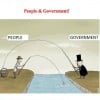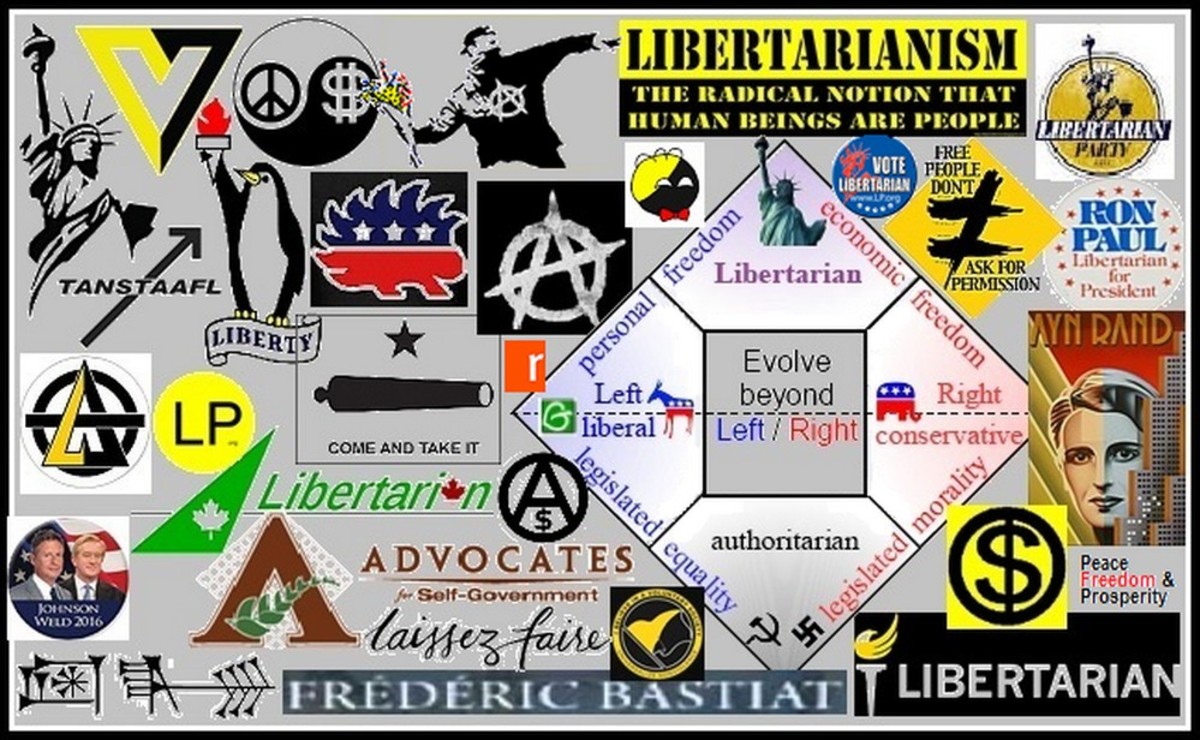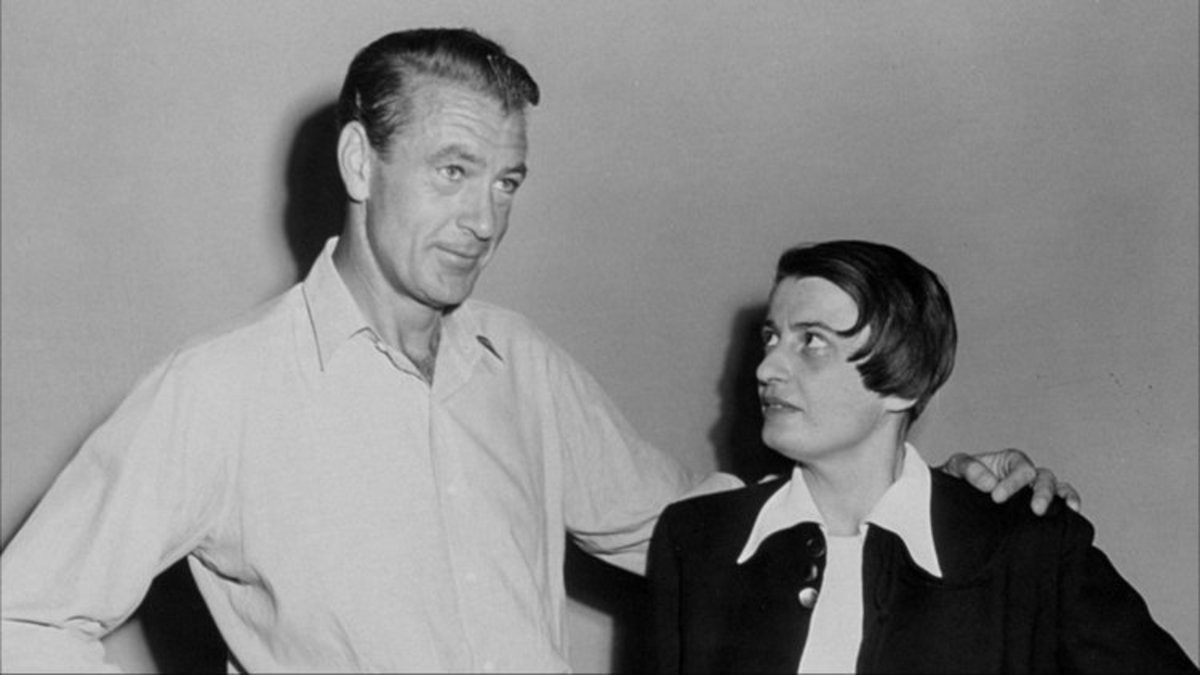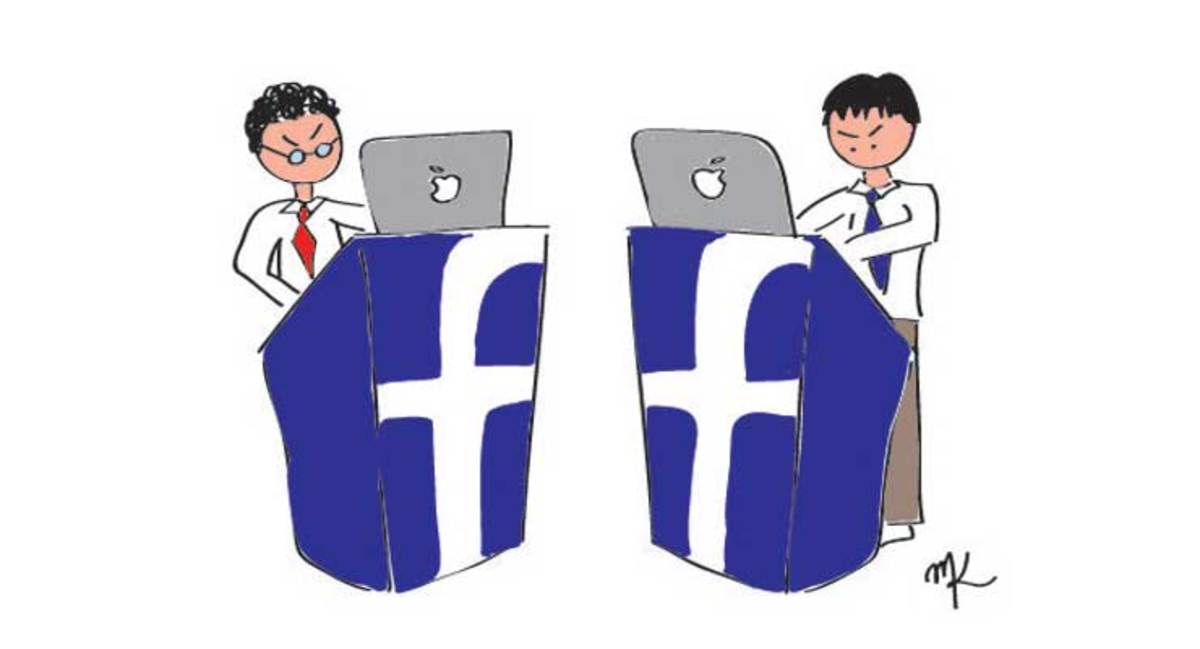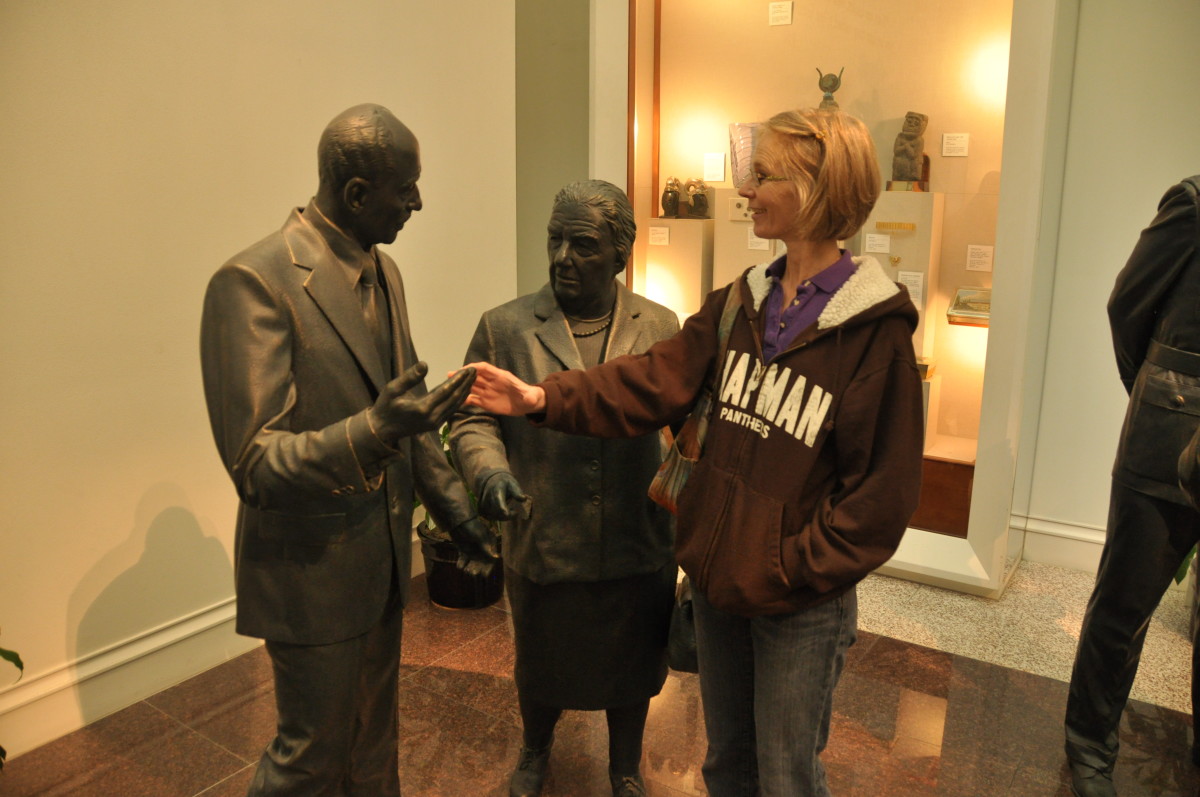The Libertarian Party Prepares for Relevancy
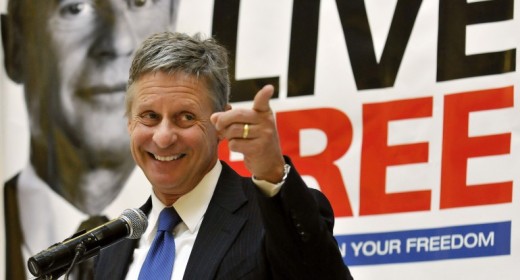
What’s a Libertarian?
Maximum freedom. Minimum government. That’s the tagline on the Libertarian Party’s website. Claiming to be the “party of principle,” Libertarians are working to expand their registered member count to become the third major party in America. Their emphasis on freedom and fiscal conservatism appeals to a wide swath of Americans, who don’t even know there is a third option.
Long the butt of political jokes, the Libertarian Party is starting to claw out of obscurity. The third largest political party in the country, this liberty-loving crowd looks to capitalize on the anti-establishment sentiment sweeping the nation. They took a concrete step on Tuesday, when the party nominated Gary Johnson, a two-term GOP Governor of New Mexico, and William Weld, another two-term GOP Governor, from Massachusetts.
Unfortunately, many do not even know the Libertarian Party exists, let alone what they stand for. Libertarians combine both liberal and conservative policies all through the lense of personal freedom and individual responsibility.
What follows are five things the Libertarian Party takes seriously.
Do you think the Libertarian party will ever rise to relevance in the American political system?
Freedom
- Freedom defines everything. If you are not free, nothing else matters. Freedom is best achieved through limited government.
- “We are the only political party that stands for your right to pursue happiness in any way you choose as long as you don’t hurt anyone else and as long as you don’t take their stuff,” party chairman Nicholas Sarwark told The Hill.
- Libertarians believe people should have the right to make their own decisions, trying, failing, and learning in the process. By allowing individuals to pursue their own happiness, instead of engineering society from D.C., society will be better off.
- Freedom should be expanded into: legalizing drugs such as marijuana, opening up free trade, repealing Obamacare and ushering in free market healthcare, and eliminating campaign finance and gun control laws.
Social Liberalism
-
Libertarians are much more open-minded than most conservatives, coming down mostly on the left on social issues.
-
They do not believe government has the authority to define marriage. Civil liberties and the rights of the individual take precedence over dictates from D.C.
-
Drug use and possession is a victimless crime, apart from the user, and the war on drugs must be rethought.
-
Abortion is not out of bounds for them, siding on the pro-choice side on this divisive issue for the most part.
Economic Conservatism
-
Libertarians believe the free market is much better at spreading the wealth around than government-forced redistribution.
-
Businesses operate by profit, government has no such motivating factor. The “invisible hand” of every self-interest cannot be outdone by the barrel of a gun.
-
Social pressure, along with the free market, will convince individuals to give to charity, giving the power to help others to much more cost-effective private businesses and charities versus the government, which perpetuates poverty nationwide via the safety net and other social programs.
-
Rights and Rule of Law: “The only proper role of government in the economic realm is to protect property rights, adjudicate disputes, and provide a legal framework in which voluntary trade is protected. All efforts by government to redistribute wealth, or to control or manage trade, are improper in a free society.”
Non-interventionist Foreign Policy
-
Libertarians want America to “abandon its attempts to act as a policeman for a world,” and its platform is very critical of America’ post-9/11 foreign policy direction. The party’s goal is to maintain a military devoted only to national defense, while shutting down foreign military and economic aid.
-
Liberty and security must also be in much better balance. We cannot be 100% safe 100% of the time. If you want that, go to prison (where you are 100% safe but have 0% liberty).
- National defense “requires that we have adequate intelligence to detect and to counter threats to domestic security.” And, our government must not trample over the Bill of Rights all in the name of keeping us safe. Secuirty “must not take priority over maintaining the civil liberties of our citizens...”
Fiscal Sanity
-
“All persons are entitled to keep the fruits of their labor. We call for the repeal of the income tax, the abolishment of the Internal Revenue Service and all federal programs and services not required under the U.S. Constitution...Government should not incur debt, which burdens future generations without their consent. We support the passage of a "Balanced Budget Amendment" to the U.S. Constitution, provided that the budget is balanced exclusively by cutting expenditures, and not by raising taxes.”
-
Gary Johnson vetoed 750 spending bills in New Mexico as Governor.
-
“Since governments, when instituted, must not violate individual rights, we oppose all interference by government in the areas of voluntary and contractual relations among individuals. People should not be forced to sacrifice their lives and property for the benefit of others. They should be left free by government to deal with one another as free traders; and the resultant economic system, the only one compatible with the protection of individual rights, is the free market.”
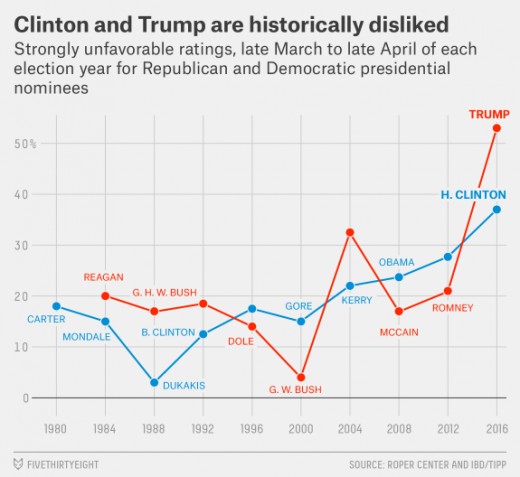
Feel the Johnson?
So, now that you know who they are, do they stand a chance?
They seem to appeal to a broad spectrum of Americans. Playing to the innate desire to be free, Libertarians stress that government is not the solution to our problems, as Ronald Reagan famously said, “government is the problem.” Too bad many Americans still have an undying faith in government being able to cure the many ills of our diverse and complex country.
Gary Johnson, also the Libertarian Party’s candidate in 2012, tallied 1.3 million votes. Though just under 1% of the vote, Democrats and Republicans alike are sick of their parties. Furthermore, both likely nominees are unpalatable to a good chunk of Americans. Americans from both sides of the aisle also feel they are being taken advantage of. So, why not try something new?
The polls show some signs of optimism for Mr. Johnson. A poll by Monmouth University put the former Republican at 11% in a three-way race with Donald Trump and Hillary Clinton. Given how little Johnson is known nationwide, this is encouraging. He was not even mentioned in the same polls with Mitt Romney and Barack Obama in 2012, but now, the Libertarian Party is getting noticed, working hard to get a spot at the two-party table.
If the party obtains a 15% of the share of the vote, they can be included in the televised debates. As more and more people are exposed to this up-and-coming party, many are likely to be intrigued by the interesting array of viewpoints in their platform. The American system seems destined for a shakeup and the two-party system is not what our Founding Fathers had in mind when creating a system of limited government.
John Adams foresaw the evils that would arise out of a two-party system in America way back in 1789. In a letter to Jonathan Jackson, Adams wrote: “There is nothing which I dread so much as division of the republic into two great parties, each arranged under its leader, and concerting measures in opposition to each other. This, in my humble apprehension, is to be dreaded as the greatest political evil under our Constitution.” Unfortunately, our country continues to become more partisan by the day. While America will certainly elect Trump or Clinton in November, voters are also looking for another viable option.
After Mr. Trump sewed up the nomination in Indiana in early May, Google reported a 5,000-fold increase in online searches for Mr. Johnson. This at least shows voters’ curiosity, but does not hint that they would vote for Johnson over Trump or Clinton. Yet, they are shopping around.
An NBC News/Wall Street Journal poll recently showed that voters could be open to pulling the lever for liberty. The poll found that 47% of registered voters would consider a third-party candidate if Mr. Trump and Mrs. Clinton were the major party nominees. Johnson and his supporters believe that with enough airtime and a positive message, he can attract both the young, progressive voters who are backing Mr. Sanders and Republicans who want limited government but fear that Mr. Trump would ratchet up spending and start trade wars.
However, this is likely wishful thinking. When it comes time to vote, many stick to what they know. And right now, people know Donald Trump and Hillary Clinton. They don’t like them, but they at least know who they are. For the Libertarian Party to become relevant, they need to at least win a state. Ross Perot, third-party, Trump-like candidate in 1992, got 19% of the country’s vote, and yet, he did not win a single state.
For Libertarians to get noticed, they need to hammer their message home and extend their reach into the hearts and minds of Americans across the country who, deep down, yearn to be free.
